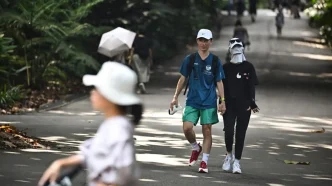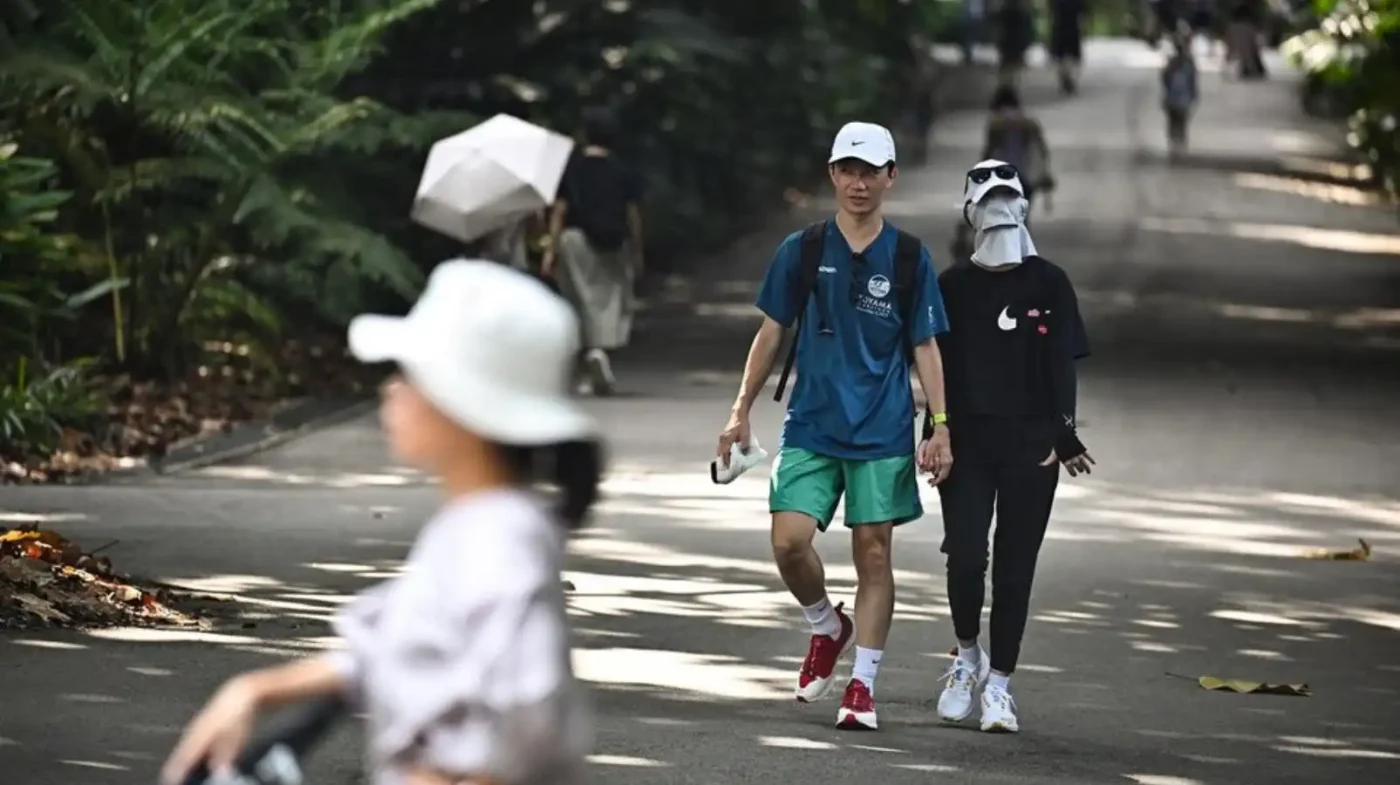As Malaysia grapples with an intense hot season, residents across the country are finding innovative ways to cope with rising temperatures. From delivery riders turning to air-conditioner sales to seeking refuge in air-conditioned mosques and malls, the heatwave is reshaping daily life. With the Malaysian Meteorological Department (MetMalaysia) issuing alerts for prolonged hot weather in several regions, concerns about dehydration and health risks are growing, prompting calls for caution even as cooling solutions become more popular.
Beating the Heat: Everyday Innovations
In Petaling Jaya, a suburb near Kuala Lumpur, the scorching weather has pushed Malaysians to rethink their routines. Delivery riders, often exposed to the elements for long hours, are among those most affected. Adam, a 33-year-old rider, has spotted a unique opportunity amid the heat. “I’ve had more inquiries from people wanting to buy air-conditioners” he said. Shifting his focus to sales, Adam now advises customers on energy-efficient units tailored to their home sizes, balancing comfort with electricity costs.
Others, like 28-year-old Iqbal Ishak, are finding respite in communal spaces. “It has been scorching hot lately, so the usual places I wait for orders – like near stalls or parking lots – are not suitable” he explained. Instead, Iqbal takes shelter in mosques or small prayer halls known as surau, which offer air-conditioning during and between prayer times. During peak hours, he waits in malls or shops with high order volumes, where restaurants often provide water to keep delivery workers hydrated.
For Harris M, a 23-year-old part-time rider and student based in Subang, the heat poses a tougher challenge. “It is harder to find shade during peak hours such as lunchtime, and we have to wear proper attire when delivering orders when the day is hottest” he noted. Prioritizing his health, Harris now takes fewer orders and ensures he carries water and essential supplements to avoid heatstroke.
Hot Weather Alerts and Regional Impacts
The Malaysian Meteorological Department (MetMalaysia) recently issued a Level 1 alert for six areas in Peninsular Malaysia, signaling ongoing hot weather for three consecutive days. The affected regions include Larut and Matang, Kuala Kangsar, and Perak Tengah in Perak; Machang and Kuala Krai in Kelantan; and Bandar Baharu in Kedah. Meanwhile, forecasts for the Klang Valley, which encompasses Kuala Lumpur and surrounding areas, indicate little to no rain in the coming days, with only isolated thunderstorms possible in certain spots.
These conditions have heightened the demand for cooling solutions, with air-conditioners becoming a sought-after commodity. However, the reliance on such devices has sparked concerns about their health implications, especially when used without moderation.
Health Warnings Amid Cooling Trends
While air-conditioners offer relief, experts caution against overuse. Datuk Indera Dr Ahmad Sabirin Arshad, president and group chief executive officer of Sirim Bhd, a Malaysian standards and certification body, recently highlighted the risks in a social media post. “Constant exposure to cold air can strip moisture from the skin and respiratory tract, and speed up the evaporation of sweat even when the body is at rest” he warned. This can lead to dehydration, particularly during sleep when many leave air-conditioners or fans running all night.
Dr Ahmad Sabirin noted that early signs of dehydration include fatigue, dizziness, dry mouth, and headaches. If ignored, these symptoms could impair kidney function, reduce concentration, and weaken the immune system. He advised maintaining a moderate bedroom temperature, drinking sufficient water before bed, and using humidifiers to retain air moisture.
A Broader Struggle with Climate Challenges
Malaysia’s current heatwave reflects a broader regional struggle with rising temperatures, a trend scientists link to climate change. Across Southeast Asia, urban areas are becoming heat islands, exacerbating discomfort for outdoor workers like delivery riders. While short-term adaptations—such as seeking shade or installing cooling systems—provide relief, they also underscore the need for sustainable solutions to address the root causes of extreme weather.
For now, Malaysians like Adam, Iqbal, and Harris are navigating the heat with resilience and resourcefulness. Their stories highlight not just the challenges of a warming climate but also the human capacity to adapt. As temperatures continue to test endurance, the question remains: how will communities balance immediate comfort with long-term health and environmental concerns?
















